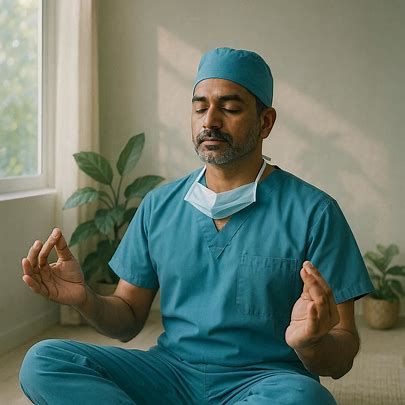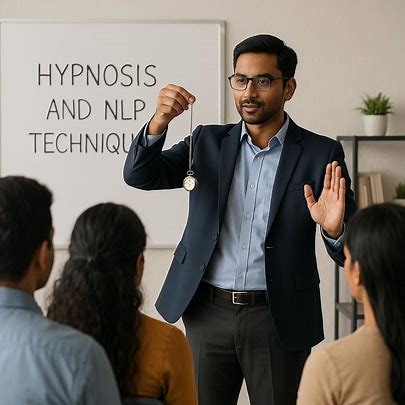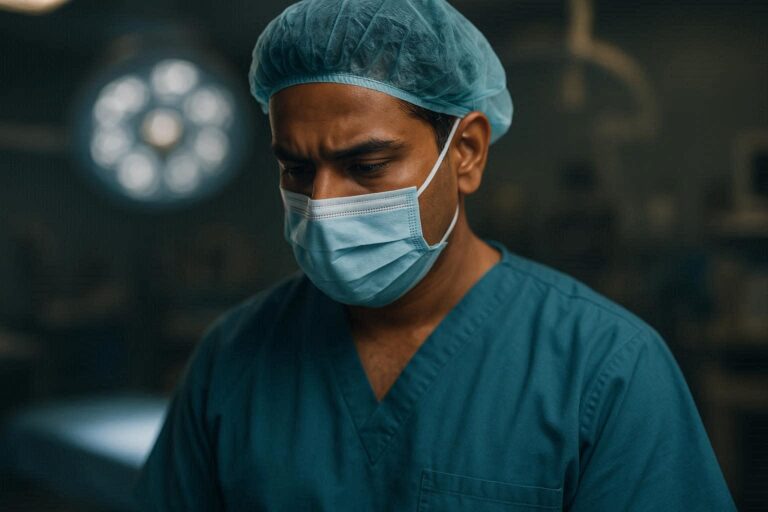Introduction: The Psychological Demands on Surgeons
Surgeons work in intense, high-pressure environments where every decision can mean life or death. Their success depends not only on precision and technical skill but also on strong mental readiness. Factors like sustained focus, emotional resilience, stress management, confidence, and effective teamwork are equally critical.
Recognizing and enhancing these psychological skills can markedly improve surgical performance. Cognitive Hypnotic Psychotherapy (CHP) offers an integrative, evidence-based approach combining hypnosis, cognitive-behavioral strategies, NLP (Neuro Linguistic Programming), mindfulness, and psychodynamic techniques to optimize surgeon mental readiness and performance.
Key Psychological Factors Impacting Surgical Performance
Focus and Attention in Surgery
Surgical precision demands unwavering concentration. Surgeons continuously process patient vitals, procedural details, and unexpected complications simultaneously. Small lapses can have severe consequences. Mental techniques that improve sustained attention are essential to peak surgical performance.
Managing Cognitive Load and Decision-Making
The operating room generates a high cognitive load through complex, rapidly changing information. Surgeons require efficient strategies to process data, prioritize tasks, and make quick decisions without errors or delays.
Emotional Resilience Amidst Surgical Stress
Surgeons regularly face emotionally charged scenarios, from critical patient outcomes to stressful family interactions. Emotional regulation helps maintain composure, reducing burnout risk and supporting clinical judgment in tense moments.
Effective Stress Management
Constant pressure triggers physical and mental stress responses that can impair motor skills and clarity. Proper stress management techniques help surgeons remain relaxed, coordinated, and focused throughout procedures.
Enhancing Team Communication and Leadership
Successful surgeries depend on smooth teamwork. Trustworthy communication, empathy, and leadership foster a collaborative environment that reduces errors and improves outcomes.
Building Confidence for Decisive Performance
Confidence allows surgeons to act decisively, even under high stakes. Overcoming self-doubt from fatigue, past mistakes, or anxiety is critical for reliable, efficient surgical execution.

How Cognitive Hypnotic Psychotherapy Enhances Surgical Performance
What is Cognitive Hypnotic Psychotherapy for Surgeons?
CHP integrates hypnosis, cognitive therapy, NLP, mindfulness, and psychodynamic insights to address both surface-level and deep psychological factors that affect surgeon performance. It equips surgeons with practical mental conditioning tools designed to boost focus, resilience, and emotional regulation.
CHP Techniques to Improve Focus and Attention
- Guided Hypnotic Visualization: Surgeons mentally rehearse procedures and anticipate challenges, strengthening concentration.
- NLP Anchoring: Conditioning access to peak focus states in the operating room, even under stress.
- Mindfulness under Hypnosis: Cultivates present-moment awareness, reducing distraction.
Stress and Anxiety Reduction through CHP
- Self-Hypnosis for Relaxation: Quick physiological calm techniques to reduce pre-operative stress.
- Reframing Stressful Situations: Hypnotic cognitive restructuring shifts perspective to approach surgeries calmly.
Building Emotional Resilience with CHP
- Regression and Reframing Techniques: Release lingering guilt or trauma related to patient outcomes.
- Emotional Processing through Hypnosis: Facilitates mental recovery and future clarity.
Enhancing Cognitive Flexibility
- Hypnotic Role Rehearsal: Practice adaptive responses to unexpected surgical challenges.
- Metaphoric Reframing: Transforms rigid mental patterns, fostering creative problem-solving.
Improving Team Dynamics and Communication
- Role-Perception Exercises: Develop empathy by experiencing others’ perspectives.
- Hypnotic Storytelling: Enhances leadership skills focused on trust and collaboration.
Reinforcing Confidence and Decisiveness
- Anchoring Past Successes: Access to confident states during complex operations.
- Cognitive Restructuring: Overcomes self-doubt and anxiety to strengthen performance assurance.
Additional CHP Techniques Beneficial to Surgeons
- Future Pacing: Mental rehearsal of successful future surgeries to program confidence.
- Ideomotor Signaling: Identifies subconscious blocks to resolve mental obstacles.
- Hypnotic Ego-Strengthening: Builds resilience and self-trust for high-pressure performance.
Real-Life Impact: CHP in Action
For example, a surgeon experiencing persistent pre-operative anxiety used guided visualization and self-hypnosis techniques from CHP. Over several weeks, anxiety reduced substantially, allowing improved concentration and smoother surgeries. Another surgeon enhanced team communication by practicing role-perception hypnosis, which led to better collaboration and fewer misunderstandings in the operating room.

Holistic Benefits of CHP for Surgeons
- Sustainable Performance: Addresses both immediate anxiety and deep-rooted fears for long-term mental conditioning.
- Improved Well-Being: Supports emotional regulation and job satisfaction to prevent burnout.
- Enhanced Patient Safety: Better focus and teamwork reduce error rates and enhance procedural precision.
- Customized Mental Training: Adaptable to individual surgeons, specialties, and specific stressors.
Frequently Asked Questions (FAQs)
How quickly can surgeons see improvements using CHP?
Many surgeons report noticeable reductions in anxiety and improved focus within weeks, with deeper resilience and confidence building over months.
Is CHP suitable for all surgical specialties?
Yes. CHP techniques are customizable and effective across diverse specialties, supporting the unique demands of each.
Can surgeons learn CHP techniques themselves?
Surgeons often benefit from trained therapists applying CHP, but many self-hypnosis and visualization exercises can also be practiced independently.
How does NLP fit into CHP for surgeons?
NLP provides communication tools, mental anchoring, and reframing strategies integral to CHP, helping surgeons access optimal mental states.
Conclusion: Aligning Mind and Skill for Peak Surgical Performance
Surgical excellence depends on integrating technical mastery with psychological strength. Cognitive Hypnotic Psychotherapy for surgeons offers a versatile, scientifically grounded approach to enhance focus, emotional resilience, decision-making, confidence, and teamwork. By conditioning the mind as thoroughly as the body, surgeons can consistently perform at their best, ensuring safer outcomes and sustained well-being.
If you are a Psychologist and Coach
Are you a psychologist, therapist, or coach eager to expand your expertise with cutting-edge techniques like clinical hypnosis, NLP, mindfulness, and psychodynamic tools?
Master Cognitive Hypnotic Psychotherapy to empower high-performance professionals, including surgeons, to overcome stress, build resilience, and enhance peak performance. Elevate your practice with transformative skills that integrate mind and behavior science for lasting impact.
Start your CHP training today and become a catalyst for life-changing mental mastery in surgical performance and beyond!

